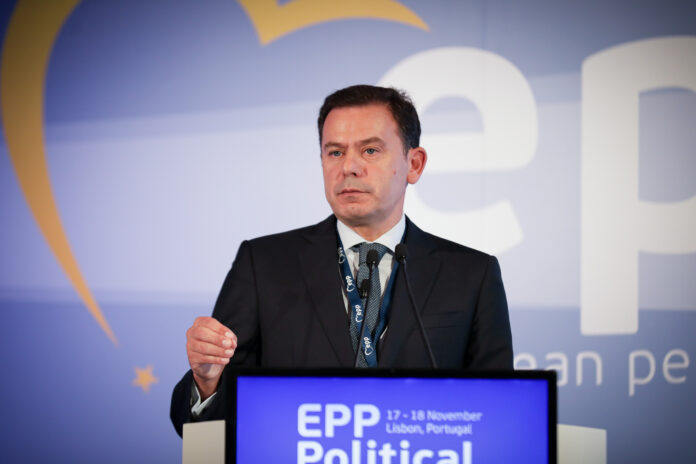The new Portuguese Prime Minister took office this Tuesday, April 2. After presenting the proposal for the organics and the composition of his Government, which was accepted by the Portuguese President of the Republic, the head of the Democratic Alliance (AD) and Social Democratic Party (PSD) officially became Prime Minister.
Moreover, the 17 elements chosen and presented to the President as the composition of the new Government became Ministers. When it comes to the Secretaries of State, the date for taking office is today.
The swearing-in ceremony was held in Belém, at the official residence of the President, and had 150 guests, among which was the former Prime Minister, António Costa. Every political party leader was invited, however, not all went.
The right-wing leaders went, but all of the left-wing leaders chose not to show up. This, according to experts, may be a sign that the new Government is in a somewhat difficult position, considering that it does not have a majority and that it will be obliged to work with the other parties.
When it comes to the Ministers, most of them are politicians from Luis Montenegro’s close circle. Notwithstanding, as a way of showing proximity to civil society, the new Prime Minister also nominated independent academics. There are 11 politicians, 5 academics, and 1 judge. Out of the 17, 7 elements are women.
The Ministers will all have conditions to start working right away. According to the new Prime Minister, the objective was to not make profound changes that would hinder the possibility of moving forward immediately. For that reason, Luís Montenegro designed the organics of his Government similarly to the one of the former Government.
It is relevant to note that the new Government will operate with the State Budget that was approved for the former Government. There won’t be the need for a correction, which was the objective of the President when he dealt with the resignation of the former Prime Minister, and currently, consequently, also of the new Prime Minister. This means that it will be possible to maintain a certain degree of stability, whilst starting to work towards what is best for the country.
Following the plan of the new Prime Minister and the necessities of the country, the first priorities are the acceleration of the Recuperation and Resilience Plan (PRR), the implementation of the health emergency plan, and the phased defrosting of teacher’s careers.
It may be important to consider, as an informative side note, that the majority of the minority Governments in Portugal (six out of eight), did not serve their 4-year term until the end.


